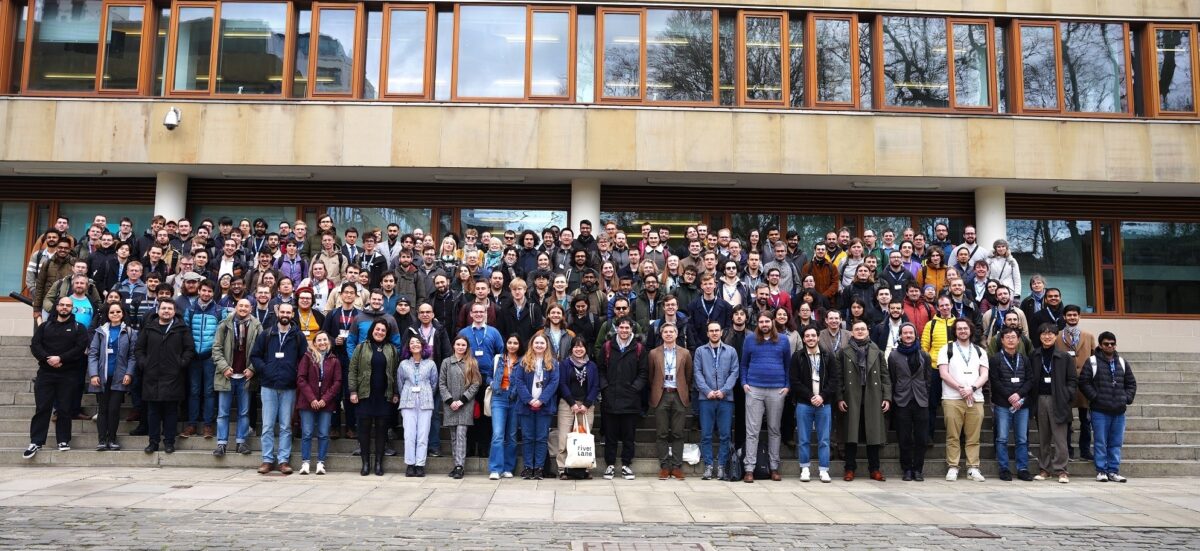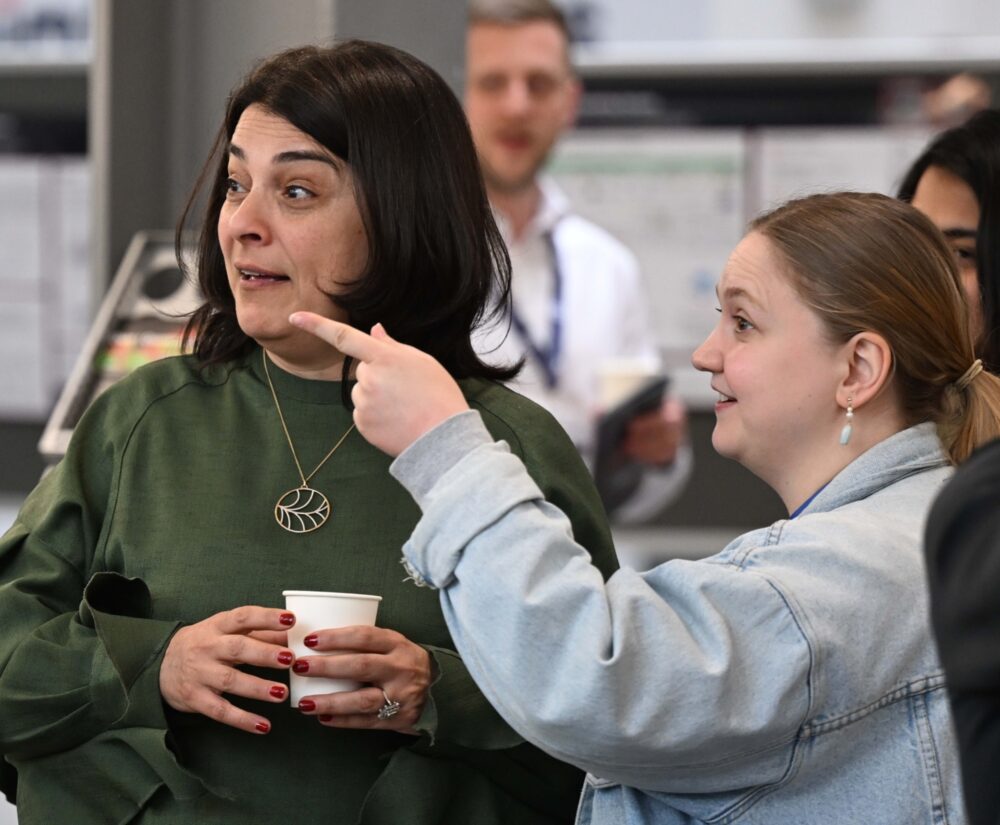
Last week, the Quantum Software Lab at the University of Edinburgh hosted Quantum Week Scotland 2024, a first-of-its-kind five-day programme of events designed to bring industry and academia together and showcase latest developments in the field.
Quantum Week brought together more than 500 academics, researchers, and students with globally leading quantum computing companies and government representatives to explore scientific advancements, innovation, and impact in the field of quantum computing.
The week included an AIMDay, supported by Edinburgh Innovations, featuring 14 workshops on the theme of Quantum Computing Applications, aimed at matchmaking industry pain points with scientific expertise in order to identify tangible ways of collaborating.
Workshops focused on a range of challenges from understanding algorithms that may benefit from quantum simulation (Nvidia) to exploring support mechanisms for strengthening the quantum ecosystem (Digital Catapult).
Thomas Clarke, a graduate scientist from quantum computing startup Quantum Base Alpha, attended the AIMDay looking to hear about near term opportunities for quantum machine learning in bioinformatics. He said:
Quantum is a space where people are still exploring lots of different directions and of course, as a company, we can only go in so many directions. So, hearing what other people are doing and the diverse set of opinions that they have is extremely useful in guiding the future of our research. It’s also useful in that our work is heavily based on collaboration. So, seeing that other people have an interest in our area and also the areas that they're working, in that we might want to pivot to is very useful when we're looking for future partners. ”
Dr Oliver Brown, EPCC Chancellor’s Fellow and leader of EPCC’s Quantum Applications Group, who joined AIMDay discussions on the integration of personal and quantum computers and benchmarking quantum hardware, said:
As an academic, working directly with industry provides insight into the most pressing challenges at the point of application. Industrial collaboration seeds projects which I wouldn't have thought of, and which are often higher up the TRL (Technology Readiness Level) stack, and therefore more likely to have real benefit and impact over a shorter timescale. ”

AIMDay was delivered in collaboration with QCA Cluster, a collaboration between universities of Glasgow, Strathclyde, EPCC, Edinburgh, and Scottish Enterprise / Scottish Development International.
The week also featured the Quantum Computing Theory in Practice (QCTiP) 2024 conference, featuring world-leading researchers and a keynote talk by Richard Lochhead MSP, Scottish Government Minister for Small Business, Innovation, Tourism, and Trade.
This three-day event brought together more than 60 universities and 45 companies with support from National Quantum Computing Centre (NQCC), Riverlane, Phasecraft, Quandela, Entropica Labs, Institute of Physics, Global Quantum Intelligence (GQI), UKQuantum, and Quantum Computing & Simulation Hub.
Quantum Week concluded with the Quantum Software Lab Anniversary, led by Professor Elham Kashefi of the School of Informatics and Chief Scientist of the National Quantum Computing Centre. The Anniversary event was a showcase of achievements over the past year, highlighting scientific advancements in quantum computing applications discovery, benchmarking, verification & testing, error correction, post-quantum cryptography, quantum machine learning, algorithms, and resource estimation.
Key highlights also include of a new Centre for Doctoral Training in Quantum Informatics hosted by the Quantum Software Lab, which will train 80 PhD students with partner universities Oxford, UCL, Strathclyde, and Heriot Watt, placing them with industry.
Professor Kashefi said:
Quantum Week marked a significant milestone in the evolution of the Quantum Software Lab at the University of Edinburgh. We have orchestrated a unique triad: AimDay for industry engagement, QCTiP for academic discourse, and QSL Anniversary to honour our year-long journey of bridging sectors.
Over the past year, we have cemented the foundation of an ideas factory, where intellectual rigour fuels business growth, and a cadre of elite quantum researchers are building, brick by brick, the future of secure, fast, networked quantum data machines dedicated to the public good. ”